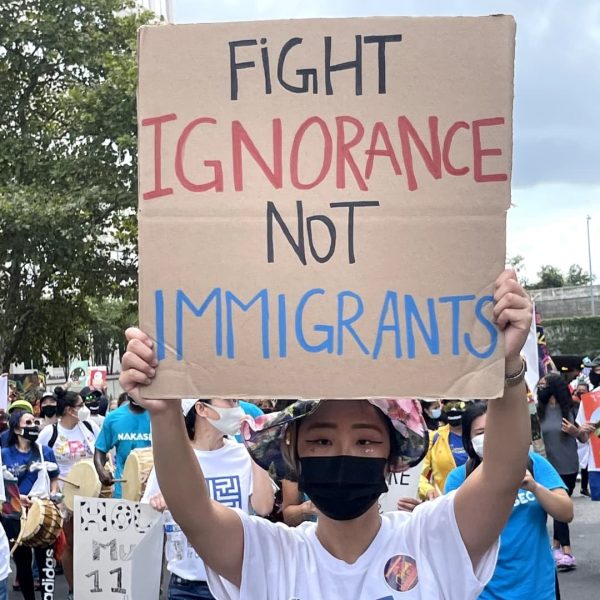With the U.S. presidential election less than 100 days away, anxiety is rising among DACA (Deferred Action for Childhood Arrivals) recipients and undocumented immigrants.
Immigration is one of the biggest issues in this election, especially with Republican presidential candidate Donald Trump’s campaign promises to close the border and deport undocumented immigrants. Trump had previously attempted to end the DACA program during his previous term.
According to USCIS (U.S. Citizenship and Immigration Services) data, the Korean undocumented population was estimated to total 110,000 in 2022. While Mexicans, El Salvadorans, and Indians make up the overwhelming majority of undocumented immigrants in the U.S., Koreans also represent a significant portion.

Immigrant advocacy groups estimate that the Korean-American undocumented population could be as high as 150,000, including those who are undercounted in the statistics. In the New York metropolitan area, about 20,000 are undocumented in New York State, and about 10,000 are in New Jersey. This means that one in 10 Korean Americans living in the New York metropolitan area could be affected by immigration policies.
DACA recipients and so-called Dreamers, who are now in their 12th year of status, are also on edge. Currently, there are more than 6,000 Korean-American DACA recipients. The situation is particularly challenging for young adults who were brought to the U.S. by their parents as children. They may have grown up in the U.S. and learned to be “American,” but their future may be unclear at a crucial time in their lives. Unlike first-generation immigrants who came to the U.S. after spending significant time in their home countries, it’s not easy for their children to leave the U.S. and seek opportunities in countries they did not grow up in.
The DACA program is currently facing several legal battles, which will eventually be decided by the conservative-leaning Supreme Court. Experts expect the Supreme Court to begin hearing DACA cases this October, with a decision expected as early as next year.
“We often think of immigration issues as someone else’s story, but it’s the story of people around us,” said Jeongrae Jang, 34, a Korean-American DACA recipient. “I wish it was better understood that anti-immigration policies can have a variety of effects, including narrowing the door to legal immigration.”
A 31-year-old Korean American, who requested anonymity, shared his story of coming to the U.S. in 1999 at the age of six. With no support from his divorced parents, he began working as a cashier at 15 and later in coffee shops and restaurants to make ends meet. When the DACA program was announced, he was relieved. “My first thought was, ‘Wow, I don’t have to work illegally anymore,'” he said.
Chaewon Park, a 24-year-old undocumented immigrant, avoids news about DACA altogether. Park arrived in the U.S. in 2011 but did not qualify for DACA. “I feel disappointed and upset every time,” she said. “I used to follow the news, but it’s just not good for my mentality.”
With the upcoming election, Dreamers and undocumented Korean-American youth face potential uncertainty. The possibility of Trump rescinding DACA if re-elected looms large.
One 30-year-old DACA recipient expressed concern, saying, “I am very worried that if Trump is re-elected, he will rescind DACA like he did in his first term.” Another 36-year-old DACA recipient shared that many are planning to secure their status through marriage or military service.
Non-renewal of Employment Authorization Documents (EAD) would force many into cash jobs. Ju-bum Cha, a senior consultant at the Minkwon Center, warned, “Young people will be forced into the shadows of American society.”
Another potential impact of repealing DACA would be the separation of families. Many DACA recipients are considering leaving the U.S. if they lose the right to work legally. This could lead to unexpected separations from non-DACA family members.
“For some people, they live DACA status when their siblings or children born in the U.S. are citizens,” said a Korean-American DACA recipient who asked not to be identified. “If they leave the U.S. because they can’t work, they have to choose not to see their family.”
According to immigration advocacy organization Fwd.US, there are 1 million U.S. citizens living with DACA recipients, and more than 300,000 of them have one parent who is a DACA recipient.
BY EUNBYUL KIM, HOONSIK WOO [kim.eb@koreadailyny.com]






